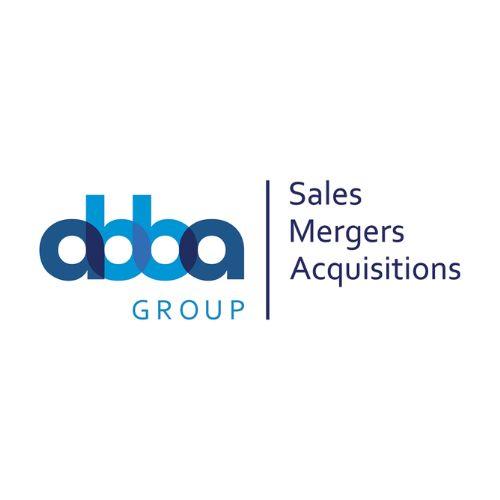Notifications

8 minutes, 22 seconds
-340 Views 0 Comments 0 Likes 0 Reviews

Acquiring a business is much bigger than just a sale; it's closing the door on one chapter and opening the book for something new. Owners who have poured years and sometimes decades into building their company usually focus first on landing the best price when it comes time to sell. Lurking in the depths of deals is a crucial element that can really make or break profitability, and that element is tax.
Maximising profits isn't just about negotiating a high price, it’s about ensuring tax efficiency. A poorly structured deal can lead to unexpected liabilities, slashing profits significantly. With good planning and strategy, small business owners can score a bigger take when profits roll in and also cut down on unnecessary tax headaches along the way to selling a business.
Understanding tax implications means looking beyond the final sale price. Structuring the deal properly determines how much of the earnings remain in hand after the government takes its share.
Every business sale falls into one of two categories: asset sales or stock sales. Each structure has its tax treatment, which directly influences the final profit.
Asset Sale: It involves selling individual business assets, including equipment, real estate, and goodwill. Buyers often prefer this setup because it offers some nice tax benefits, like depreciation deductions. However, sellers may face higher tax rates since some portions of the sale are taxed as ordinary income rather than capital gains.
Stock Sale: Involves selling shares of the company. This structure typically results in long-term capital gains tax treatment, leading to a lower tax rate. Sometimes, sellers love the idea of selling stock, but buyers can be slow to go because their tax benefits are lower. Sellers are quite happy to part with shares and collect those, but buyers cautiously wait because their tax payoff is a bit less flashy.
Careful planning determines which structure yields the highest post-tax profit. Aligning the deal structure with financial goals ensures that the tax impact is minimised.
Selling a business can lead to substantial capital gains, which are subject to taxation. Unlike ordinary income tax rates, capital gains tax rates tend to be lower, making it crucial to structure the sale to maximise long-term capital gains treatment.
Long-term capital gains apply when the business has been held for more than a year, reducing the tax burden compared to short-term capital gains. Making that distinction alone can really make a big difference in how much people remember afterward.
Years of asset depreciation provide tax benefits while running a business. But when those assets get sold, Uncle Sam expects a chunk back in depreciation recapture. Instead of being taxed at capital gains rates, recaptured depreciation is taxed as ordinary income, often at a higher rate.
Minimising this impact requires strategic planning. Allocating more value to goodwill and intangible assets in an asset sale can reduce depreciation recapture, ultimately leading to a lower tax burden.
Many business owners focus solely on federal tax implications, neglecting the impact of state and local taxes. Tax rates vary significantly depending on location, and some states impose additional levies on business sales.
Working with a tax pro when in search of “selling my business” guarantees that there are no unpleasant surprises after a sale. Let's say that another way - it makes sure everything is transparent from start to finish. Structuring the deal efficiently may involve relocating before the sale or leveraging state-specific tax incentives to reduce overall liability.
Tax efficiency is not a last-minute fix. Planning thoughtfully and well ahead of any sale puts the business's owners in a good position to succeed.
Taking all of the profits upfront might result in a big tax bill. Opting for an installment sale, where payments are spread over multiple years, reduces immediate tax liabilities. This way, income is recognised gradually over time, which can bring down the overall tax burden.
Certain reinvestment strategies allow business sellers to defer taxes. A 1031 exchange, typically used for real estate, enables reinvesting proceeds into a similar type of property without triggering immediate capital gains tax. While this strategy has limitations, it offers tax deferral opportunities under the right circumstances.
Reinvesting a portion of the sale proceeds into retirement accounts like IRAs or 401(k)s can reduce taxable income. Setting up a Rollover for Business Startups (ROBS) allows tax-free reinvestment into a new venture without early withdrawal penalties.
Donating a portion of business ownership to a charitable trust before the sale can significantly reduce capital gains taxes. A Charitable Remainder Trust (CRT) provides immediate tax deductions while allowing sellers to receive income from the trust for a set period.
Navigating tax implications alone is risky. People who are really good at selling businesses help out with making good deals and maximising profits. Their skills not only ensure that they're following all the rules smoothly, but they also find hidden savings that others miss.
A financial planner customises strategies to hit long-term goals, while a lawyer ensures every step complies with the rules. When they work together, they prevent sellers from tripping over things that could cost them money.
Selling a business is a milestone that demands careful planning. Without proper tax strategies, a significant portion of the hard-earned profit could be lost to taxation. Owners who care most about tax efficiency and look for the right strategy are really laying a strong foundation for getting the biggest financial pie possible. They work with advisors who really know their stuff. These are people who really know how to get the most out of tax laws.

